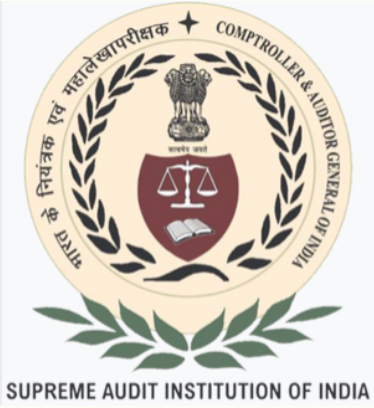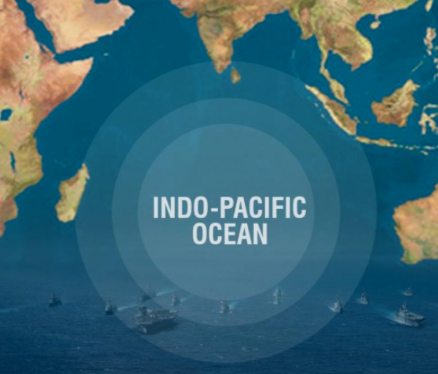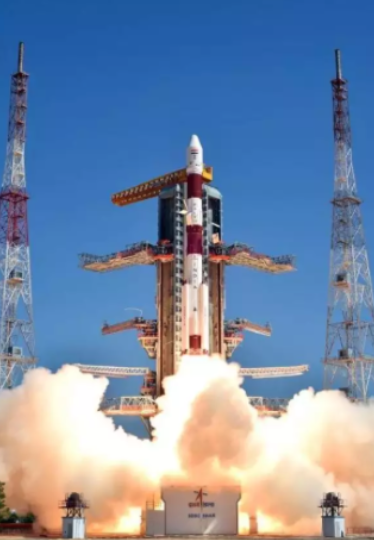Daily Current Affairs | March 18 2025 |
Important Topics from Current Affairs : 1) Appointment of CAG India 2) Indo-Pacific Oceans Initiative (IPOI) 3) Electoral Reforms 4) India’s 2nd Spaceport
Jumbo IAS
3/18/20254 min read
1) Appointment of CAG India
The Supreme Court decided to examine a plea challenging the sole prerogative of the Centre, acting through the President, to appoint the Comptroller and Auditor General of India.
The Petioners have argued that absolute control of the Centre over the appointment process of CAG gravely affects the Independence of this Constitutional authority.
The petition demands a non-partisan selection committee to safeguard the independence of the CAG.


About CAG
It is a Constitutional Authority that oversees financial accountability of Public Purse.
Article 148 to 151 of the Constitution deal with CAG.
As per Article 148, CAG is appointed by the President by warrant under his hand & seal.
Tenure - 6 years or until the age of 65, whichever is earlier.
Not eligible for any future office under the Govt.
Removal - Same as Supreme Court Judge.
Role and Responsibility
Supreme Audit Authority : Audits all expenditures from the Consolidated Fund of India & Consolidated Fund of States. Audits accounts of government corporations, PSUs, and government-funded bodies.
Submits Reports : Submits audit reports to the President or Governors, who lay them before Parliament or State Legislatures. These reports are scrutinised by Public Accounts Committee (PAC) of the House.
Ensures Parliamentary Accountability : It Acts as an agent of Parliament, ensuring public funds are used legally.
Proprietary Audits : Can conduct propriety audits to evaluate the wisdom, faithfulness, and economy in government spending.
Certifies net proceeds of taxes.
2) Indo-Pacific Oceans Initiative (IPOI)
Prime Minister Narendra Modi and New Zealand Prime Minister Christopher Luxon pledged to bolster their bilateral relationship, focusing on trade, defence, and cooperation for regional peace in the Indo-Pacific.
PM Modi welcomed New Zealand’s decision to join the Indo-Pacific Oceans Initiative (IPOI), underscoring the shared vision for a free, open, and secure Indo-Pacific.


About IPOI
It is a non-treaty-based voluntary arrangement, launched by India in 2019 at the ASEAN-led East Asia Summit (EAS) in Bangkok.
Aim - Promote cooperation for a free, open and rules-based Indo-Pacific region.
It builds upon the “Security and Growth for All in the Region” (SAGAR) initiative announced by the Prime Minister in 2015.
7 Pillars of IPOI
The IPOI outlined seven pillars, and it was indicated that one or two countries could take the lead for a pillar with others joining in voluntarily. The seven IPOI pillars are:
Maritime Security: The United Kingdom (UK) and India
Maritime Ecology: Australia and Thailand
Maritime Resources: France and Indonesia
Capacity Building and Resource Sharing: Germany
Disaster Risk Reduction and Management: India and Bangladesh
Science, Technology, and Academic Cooperation: Italy and Singapore
Trade, Connectivity, and Maritime Transport: Japan and the United States (US).
3) Electoral Reforms
The Election Commission (EC) has invited political parties to discuss strengthening the electoral process amid allegations of electoral roll manipulation, duplicate EPIC numbers, and concerns over EVM-VVPAT reliability.
These discussions would be on electoral reforms which are crucial for maintaining democratic process in India.


Issues
Voter Verifiable Paper Audit Trail (VVPAT) - Opposition parties demand 100% VVPAT verification.
EPIC Numbers - Voters in states like West Bengal and Gujarat share identical EPIC numbers, raising doubts about voter list integrity.
Election Expenditure - Political parties exceed expenditure limits, with the 2024 Lok Sabha elections estimated to cost ₹1,00,000 crore.
Criminalisation of Politics - 46% of MPs elected in 2024 have criminal cases, with 31% facing serious charges like murder and rape (ADR report).
Legal Regime for Elections in India
Article 324 of the Constitution - It Vests the superintendence, direction, and control of elections in the EC, ensuring its autonomy in conducting elections.
Representation of Peoples Act 1950 - Governs the preparation of electoral rolls and voter registration.
Representation of Peoples Act 1951 - Governs the conduct of elections to Parliament and State Legislative Assemblies.
Registration of Electors Rules, 1960 - Provides the framework for voter registration and EPIC issuance.
Model Code of Conduct (MCC) - A voluntary set of guidelines to ensure ethical campaigning and fair play during elections.
Various directives given by Supreme Court.
4) India’s 2nd Spaceport
ISRO’s second spaceport outside Andhra Pradesh’s Sriharikota, which is coming up at Kulasekarapattinam coastal town in Tamil Nadu’s Thoothukudi district, will see its maiden launch of a small satellite launch vehicle (SSLV) or mini-PSLV in 2027.
The new spaceport will enhance India’s capabilities in space launch services.


Key Features
Equipped with 35 major facilities, spread out on 2,350 acres.
Launch capacity of 24 satellites annually using SSLVs.
Strategic location(East Coast of India) minimises fuel consumption and avoids overflight of landmasses.
India currently has one operational spaceport, the Satish Dhawan Space Centre (SDSC) in Sriharikota, Andhra Pradesh, with two launch pads. It became operational in 1971.
Why East Coast of India Ideal for Spaceports ?
Proximity to Equator - Earth’s rotational speed is higher at the equator. Launching from near the equator allows rockets to carry heavier payloads to orbit using less fuel, as they gain a significant boost from the Earth's rotation.
Supports Eastward Launch - Launch vehicles are typically launched eastward to take advantage of the Earth's eastward rotation, which provides a "free boost" and reduces the amount of fuel needed to reach orbit.
Large uninhabited area for a safety zone.


